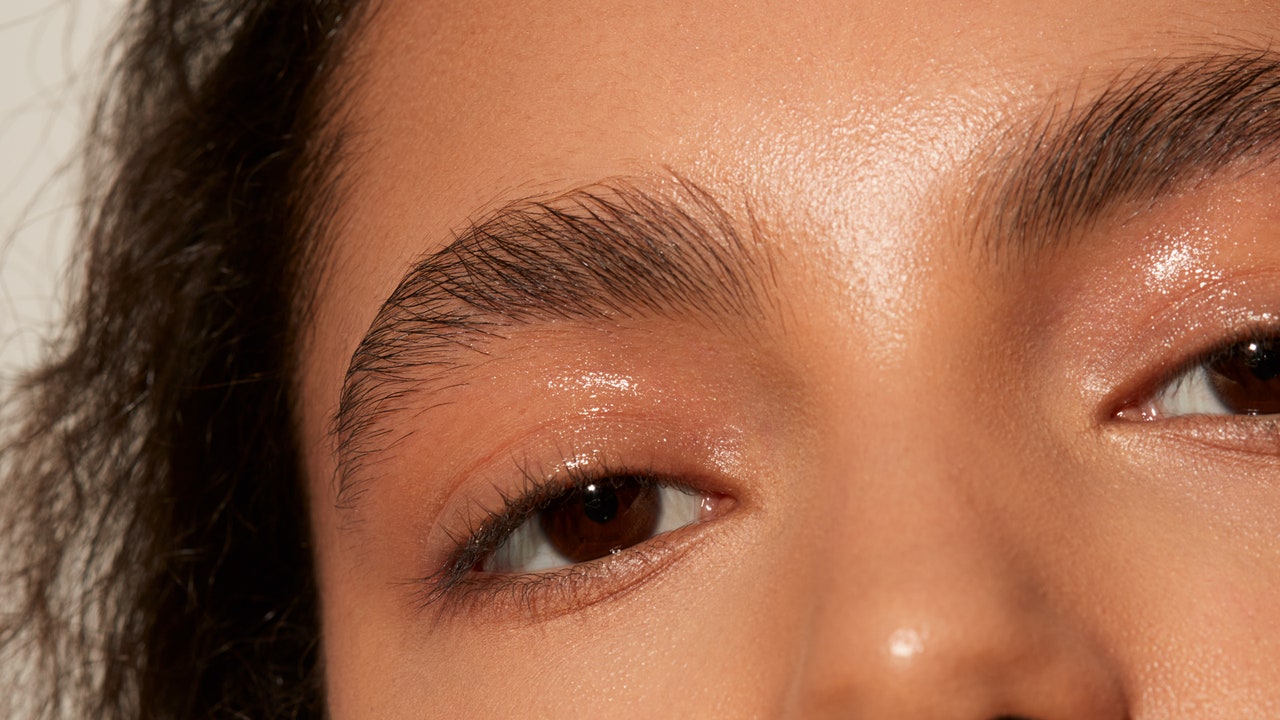Tomassian agrees—with a few caveats regarding skin type. “Microblading is a great option for those who struggle with medical conditions that result in hair loss such alopecia totalis,” says Tomassian. “However, with microblading does come with some scar tissue formation which can potentially limit the results of a hair transplant down the line. Tomassian adds that people with certain skin conditions, such as psoriasis, eczema, or active acne may not be suitable candidates for microblading, as it can exacerbate these conditions.
What Can You Expect at a Microblading Appointment?
To begin, the microblading procedure isn’t exactly quick. Expect to allot two to three hours for the entire appointment, consultation included. You’ll start by talking to your technician about your natural brow concerns and experiences, along with goals and expectations for your new brows.
“A topical numbing cream is applied to the eyebrow area to minimize discomfort during the procedure,” says Aava. “Next, the technician will measure and map out the ideal shape and position of your eyebrows, ensuring they are symmetrical and complement your facial features.” Your microblading artist will then select the right pigment to match your natural hair color and complement your skin and create hairlike strokes throughout the entire area, microshading to create an even and full look.
As for how it feels, “While some clients may experience slight discomfort or a sensation akin to light scratching during the first two minutes of the procedure,” Aava says, “the overall experience is relatively pain-free.” Some even say that tweezing and waxing are more painful.
Initial results will appear darker at first (Breyne estimates an 20-40% increase in depth and definition) but the color will settle over time. To wrap up the appointment, you’ll talk aftercare and likely schedule the first in a series of ongoing touch-up appointments. “The first touch-up appointment is scheduled for 4-6 weeks post-procedure to make any necessary adjustments and ensure the best possible outcome,” says Aava.
“The number of touch-ups per year will depend,” says Breyne. Her technique lasts seven to eight months, adjusting for “your skin, lifestyle, expectations, and skincare routine, such as retinol acid or vitamin C. Vitamin E may play a part in weakening pigment, as well, so be sure to chat with your technician about your beauty regimen. Everyone is different, and unique. Some clients can last more than a year.”
What About Post-Care?
Like many cosmetic procedures, microblading has a somewhat visible recovery period. “Clients will be provided with aftercare instructions, which include applying aftercare ointment and avoiding moisture, sun exposure, and certain skincare products during the healing phase,” says Aava. Tomassian suggests that you take those seriously. “Like any procedure that breaks the skin, there’s a slight risk of infection if proper hygiene and aftercare instructions are not followed.” You may experience swelling for a few hours post-treatment, along with extra-pronounced brows.
“Over the next 1-2 weeks, the eyebrows will go through a healing process,” says Aava. “During this time, clients may experience scabbing, flaking, and some fading of the initial color.” Expect some itchiness, but be sure to avoid scratching to decrease risk of infection and messing up your newly-applied pigment. After a week or so, begin applying sunscreen to your brows to prevent fading.
And finally, just enjoy the confidence that comes with a full, natural-looking brow. “Proper aftercare is your secret weapon for maintaining your gorgeous brows,” says Breyne. “Dedicate yourself to it, and you’ll enjoy your new look for years to come.”
Read the full article here











